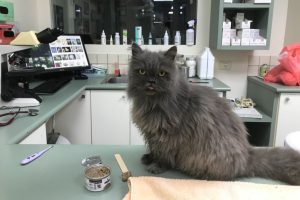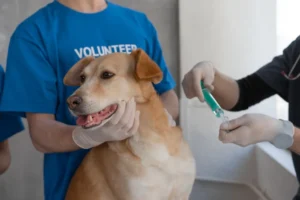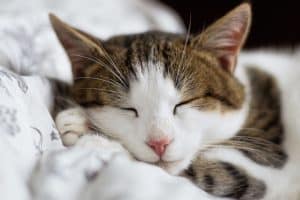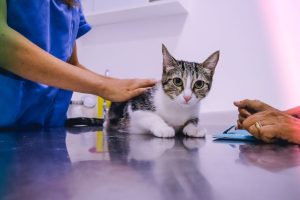Caring for a senior cat can be both a rewarding and challenging experience.
As your feline companion enters their golden years, their health needs change, and navigating those changes can sometimes be overwhelming. Among those needs, vaccinations play a vital role in keeping your aging furball protected and healthy.
This article will guide you through the process of tailoring vaccination plans for your senior cat, helping you make informed decisions that will have a lasting impact on their well-being.
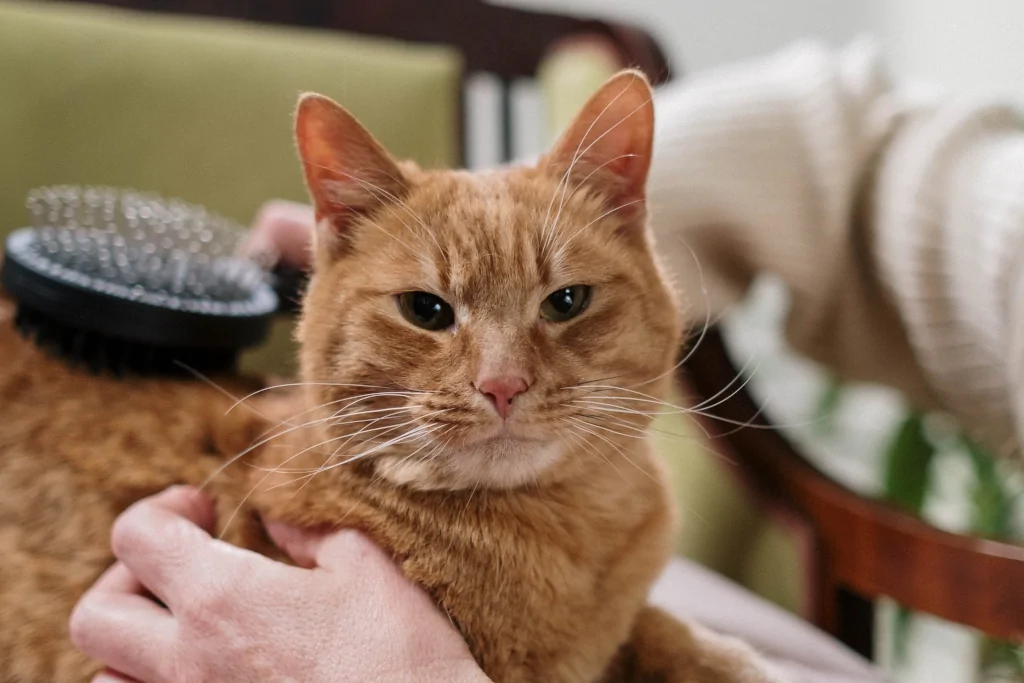
Why Do Senior Cats Need Special Vaccination Care?
As cats age, their immune system undergoes changes that can make them more susceptible to infections and diseases.
Just like humans, their immune response may weaken over time, making it harder for them to fight off illnesses. That’s why senior cats need special attention when it comes to vaccinations.
Additionally, chronic health issues that are more common in senior cats can further compromise their immune function.
This decline in immunity makes it crucial to adapt vaccination strategies and schedules to address their unique needs, keeping them healthy and protected throughout their golden years.
Recommended Vaccines for Senior Cats
Determining the most suitable vaccines for your senior cat involves considering their lifestyle, previous vaccinations, and overall health.
Here’s a list of vaccines that should be considered for your elderly feline friend:
- Core Vaccines:
- Feline panleukopenia (FPV): Also known as feline distemper, FPV is a highly contagious and potentially fatal disease. Senior cats may require less frequent booster shots, but your veterinarian will help determine the right schedule.
- Feline herpesvirus-1 (FHV-1): FHV-1 causes respiratory and ocular issues in cats. While senior cats with a history of proper vaccination may have longer-lasting immunity, regular vet checkups can ensure they’re adequately protected.
- Feline calicivirus (FCV): This virus also causes respiratory infections, and senior cats with weakened immune systems may be more susceptible. Your vet will assess your cat’s risk and recommend an appropriate vaccination schedule.
- Rabies: Rabies vaccinations remain essential for senior cats, as the disease is always fatal once symptoms appear. Depending on local regulations and your cat’s health, the vaccination frequency may vary.
- Non-core Vaccines (based on risk factors):
- Feline leukemia virus (FeLV): While FeLV is more common in younger cats, senior cats with outdoor access or exposure to infected cats should still be vaccinated. Your veterinarian will assess the necessity of this vaccine based on your cat’s lifestyle.
- Feline immunodeficiency virus (FIV): Senior cats, particularly those with outdoor access or who live with FIV-positive cats, may benefit from the FIV vaccine. It’s crucial to discuss the pros and cons of this vaccine with your veterinarian, as some concerns exist regarding its efficacy and potential for false-positive test results.
- Feline infectious peritonitis (FIP): FIP is a rare but often fatal disease, primarily affecting younger cats. However, if your senior cat is at high risk due to exposure to multiple cats or living in a high-density cat population, your veterinarian might recommend the FIP vaccine.
- Additional considerations:
- Bordetella bronchiseptica: This bacteria can cause respiratory infections in cats. If your senior cat frequently visits boarding facilities, grooming salons, or has exposure to other cats, your veterinarian may recommend this vaccine.
Remember that each senior cat’s vaccination needs may differ based on their health, lifestyle, and environment. Collaborate with your veterinarian to develop a tailored vaccination plan to keep your aging feline friend healthy and protected.
Vaccination Schedules: What Changes for Older Felines?
As your cat matures, their vaccination schedule will likely require some adjustments.
Typically, senior cats receive fewer vaccines and at less frequent intervals compared to their younger counterparts. For instance, many core vaccines are given every three years instead of annually.
In addition to adjusting the frequency of vaccinations for senior cats, it’s also worth considering the type of vaccine administered.
For some senior cats, veterinarians may opt for non-adjuvanted vaccines, which contain fewer additives and are thought to reduce the risk of vaccine-related side effects. This can be particularly beneficial for cats with compromised immune systems or those prone to adverse reactions.
It’s essential to work closely with your veterinarian to determine the most appropriate vaccination schedule for your senior cat, taking their age, health, and lifestyle into account.
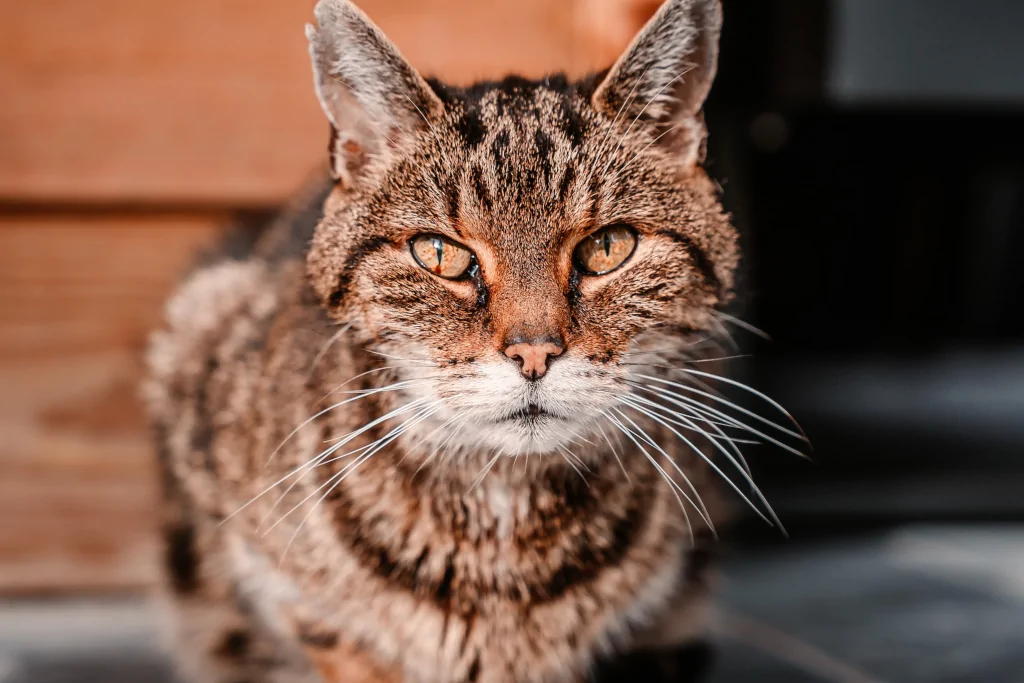
Special Considerations for Cats with Pre-existing Health Conditions
In cases where a senior cat with pre-existing health conditions may benefit from a specific vaccine, the veterinarian might suggest alternative administration methods or vaccine formulations to minimize potential complications.
For example, they might recommend using a recombinant vaccine, which uses a small portion of the pathogen to stimulate immunity without causing illness. These vaccines tend to have fewer side effects and can be a better option for senior cats with certain health issues.
Additionally, your veterinarian may suggest additional monitoring or blood tests following the vaccination to ensure your cat is responding well and not experiencing any adverse reactions.
Monitoring Your Senior Cat’s Health: What to Look For
Keeping a close eye on your senior cat’s health is crucial to detecting any changes that could indicate potential issues or vaccine side effects. Some key areas to monitor include:
- Appetite and weight. Changes in appetite and weight can signal a variety of health issues in senior cats. Watch for sudden weight loss, increased or decreased appetite, and any difficulties with eating.
- Energy levels and behavior. Senior cats may naturally become less active, but pay attention to any sudden or dramatic changes in energy levels, sleep patterns, or overall behavior. Unusual lethargy or changes in temperament can signal underlying health problems.
- Coat condition. A cat’s coat can reveal a lot about their overall health. Monitor your senior cat for excessive shedding, dullness, or changes in coat texture, which can indicate nutritional deficiencies or other health concerns. Visit our guide on cat skin & coat health.
- Grooming habits. Senior cats might struggle with self-grooming due to age-related mobility issues or discomfort. If you notice your cat neglecting their grooming or developing matted fur, consider assisting with regular brushing or speak with your vet about potential underlying causes.
By staying vigilant and tracking these aspects of your senior cat’s health, you can catch potential problems early, ensuring your feline friend remains comfortable and healthy throughout their golden years.
FAQs
At what age is a cat considered a senior?
Cats are generally considered seniors when they reach 10-12 years of age.
Are there specific side effects of vaccines for older cats?
Side effects in senior cats are similar to those in younger cats, but older cats may be more sensitive to them.
Can a senior cat still receive vaccinations if they’ve missed some in the past?
Yes, a senior cat can receive vaccinations after a lapse, but a vet will determine the best course of action.
How often should a senior cat visit the vet?
Senior cats should visit the vet at least once a year, but more frequent visits may be necessary based on their health. To be on the safe side, aim for every 6 months.
Alex, a passionate animal lover, has experience in training and understanding animal behavior. As a proud pet parent to two dogs and three cats, he founded AnimalReport.net to share insights from animal experts and expand his knowledge of the animal kingdom.

